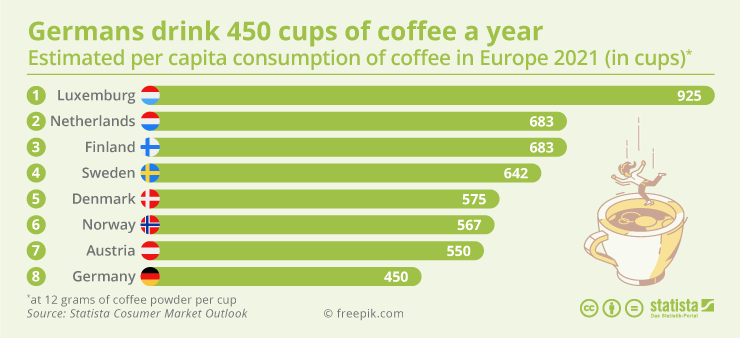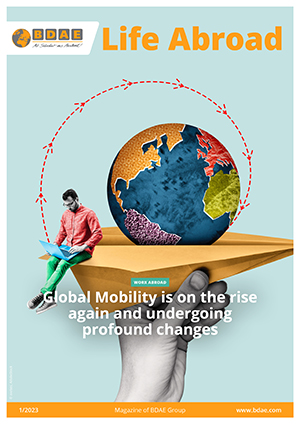When coffee is healthy and when it is not
For many people, coffee is the first and most important drink of the day. For a long time however, medical experts cautioned against excessive coffee consumption, particularly for individuals with heart conditions. But now new research has been published.
Is coffee really poison for the heart? And what other effects does coffee have on the body, the mind and the soul? The health magazine "Apotheken Umschau" asked.
Antioxidants protect against environmental influences
Science and research have established that people who drink coffee every day for decades have a lower risk of a whole range of diseases, including type 2 diabetes, depression, and dementia. Even the widespread image of coffee as a threat for cardiovascular health has long been dismissed. All in all, three to four cups are considered safe for healthy people.
Professor Chahan Yeretzian, head of the Coffee Excellence Center at the Zurich University of Applied Sciences, attributes the health-promoting effect to two substances: caffeine and antioxidants. These are chemical compounds that protect against harmful environmental influences, such as so-called free radicals. These aggressive oxygen molecules attack our cells and increase the risk of cancer and cardiovascular diseases, for example.
People who drink coffee late experience deep sleep less
Whether you drink it dissolved, filtered or pressed, coffee is mainly used as a stimulant. Sleep researcher Dr Eva-Maria Elmenhorst advises, however, not to drink coffee after 4 p.m.. An espresso in the evening disturbs rest even when you think you are deeply sleeping. "If you drink coffee late, you have less deep sleep," says Elmenhorst. You should therefore avoid coffee at least six hours before going to bed. Otherwise, you will be less well-rested in the morning – and will have to depend on coffee the next morning to survive.
These nations drink coffee the most
The people of Luxembourg drink the most coffee in Europe, with an average of 925 cups of coffee per capita in 2021. Coffee consumption is also comparatively high in the Netherlands, the Scandinavian countries, and in Austria.
It is estimated that 12 grams of powder are needed for one cup of coffee. This means that every German consumes about 5.4 kilograms of the caffeinated hot beverage per year. Most sales worldwide are generated with "out-of-home coffee" - in Germany, coffee-to-go and in cafés account for about 70 percent of total sales.


